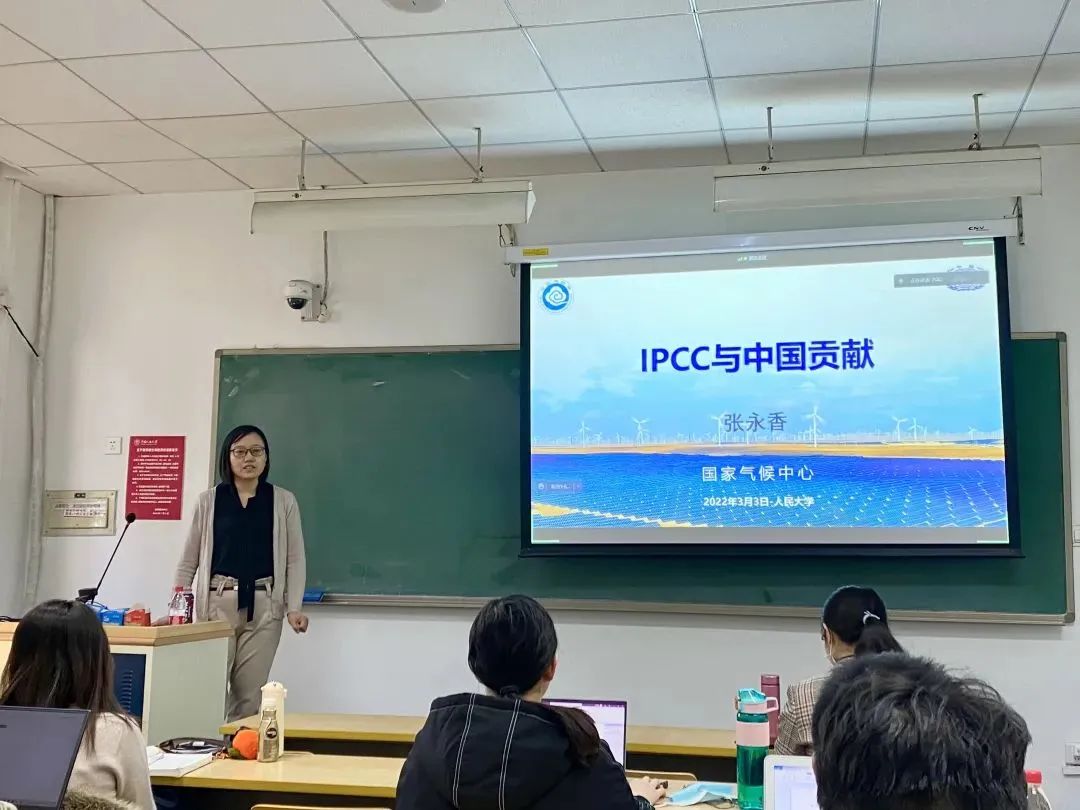The School of Global Governance of Renmin University of China held a lecture on “Intergovernmental Panel on Climate Change (IPCC) and China’s Contribution” Recently. The lecture was conducted online and offline, and nearly 30 students from 10 schools attended.

Researcher Zhang Yongxiang, principal representative of the Chinese delegation of the United Nations Framework Convention on Climate Change (UNFCCC) and the Intergovernmental Panel on Climate Change (IPCC) first introduced IPCC from four aspects: task, organizational structure, report preparation and review process, and assessment report. She also introduced six IPCC assessment reports in chronological order, including their contents and significance, as well as their influence on the negotiation process and trend of global climate governance.
Zhang later introduced the contribution of China in IPCC. Among them, China Meteorological Administration took the lead in carrying out work on climate change in China. Through persistent efforts of researchers, the citation of Chinese scientific literature now has increased significantly, the level of in-depth participation in IPCC assessment has been improved continuously, and the domestic working mechanism of IPCC is constantly improving. However, there are still gaps and deficiencies in China’s participation in IPCC compared with other countries. Zhang expressed her earnest hope to the students and encouraged them to closely focus on and engage in relevant work in the field of climate change.
The second half of the lecture focused on the Sixth Assessment Report (AR6), which analyzed the fact that global temperatures rise 1.5 degrees Celsius and set The 2030 Emission-Reduction Plans and the Net Zero Emissions by 2050 , which attracted wide international attention. The IPCC has finalized the second part of the Sixth Assessment Report, Climate Change 2022: Impacts, Adaptation and Vulnerability on February 28.
According to the report, there is no doubt about the fact of global climate change, and mankind will face enormous challenges in mitigating the process. The public needs to recognize that climate change is irreversible and has a huge impact on human life. The future climate depends on what we decide now.


